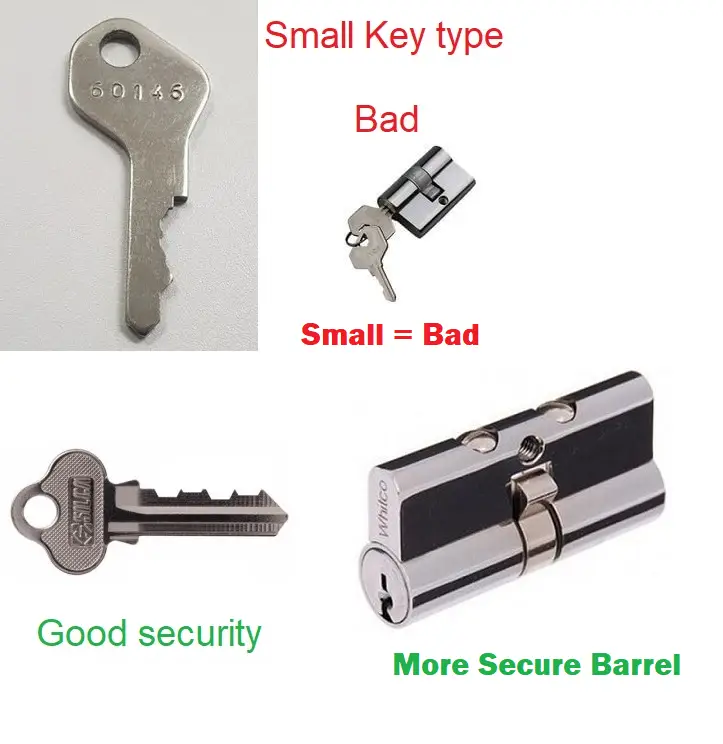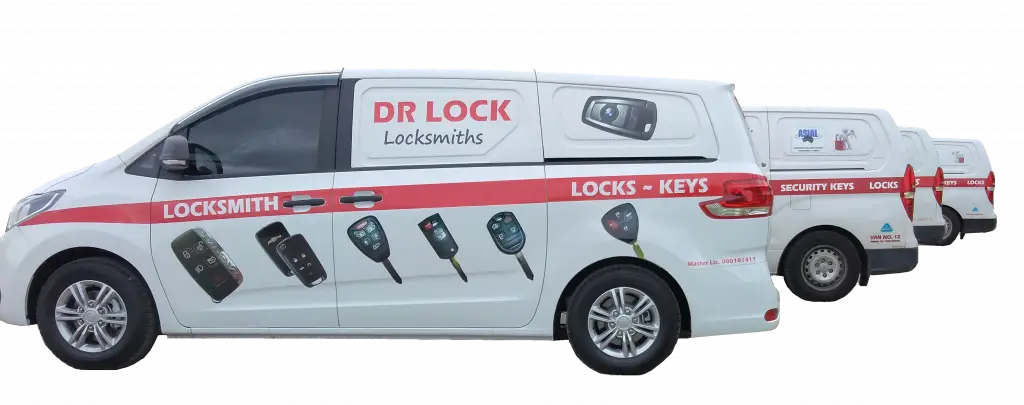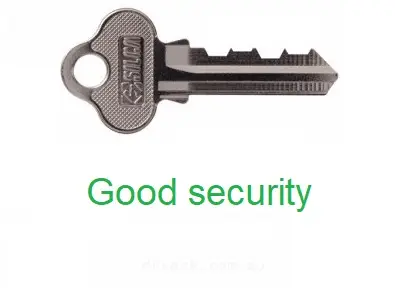New Keys for Locks
Having your locks changed is where Locksmiths re-code the locks, so the old keys no longer work the locks.
The lock is re-coded to the new key.
This prevents any other key from working the lock.
Instead of buying a new lock; this is the cheapest way to stop your old keys from working the locks.
You can match a group of locks to one key, providing the key physically slides into the Lock barrel.

Screen Door Locks
Security Screen Door Locks can have two different types of Lock Barrels (Cylinders)
The smaller (Cheaper ones) that normally come with the locks are “very” easy to unlock. Specially after a few years of use. Complete rubbish. These can not be matched to a normal lock like a dead lock’s key.
Replacing the Barrel with the more secure barrel can be matched to normal locks & one key use for the house.
Not expensive & actually provides security.
Security Screen Door locks get used many time a day & they typically last about 8 to 14 years depending on brand & use.
benefit 1
Knowing NO one else has a key to your home
benefit 2
Re-coding your locks gives you fresh keys & tumblers
benefit 3
Can match doors so one keys will open many doors
benefit 4
Makes you happy to have less keys 🙂

Doctor Lock Brisbane Locksmiths
If you are considering having your lock changed, here’s what you need to know:
- Changing your lock and getting new keys is crucial for maintaining the security of your property.
- Over time, keys can be lost, stolen, duplicated, or end up in the wrong hands.
- By changing the lock and having new keys, you ensure that only authorized individuals have access to your property.
Peace of mind:
Knowing that you have exclusive control over who can enter your premises provides peace of mind.
Whether it’s a home, office, or any other space, having new keys for your lock eliminates the possibility of unauthorized access.
Moving into a new place:
If you’ve recently moved into a new home or office, changing the lock is highly recommended.
You never know who might have access to the previous keys, including former owners, tenants, or employees.
By re-coding the locks and acquiring new keys, you take control of the security of your new space.
Upgrading security features:
Lock technology evolves, and newer locks often offer enhanced security features compared to older ones.
If your lock is outdated or vulnerable, it’s wise to upgrade to a more secure lock system.
Locksmith know the options available and can choose the lock that meets your specific needs.
Building type, Location (Suburbs) all come into it.
Key control: Restricted key systems.
Having new keys ensures better key control.
You can keep track of the number of keys issued and maintain a record of who has access to your property.
If a key is lost or a person with access leaves your organization, you can easily rekey the lock or replace it, rendering the lost or unreturned key useless.
Personal circumstances:
Certain situations may warrant a lock change, such as a breakup, divorce, change in roommates, or if you’ve entrusted keys to someone who you no longer want to have access.
Changing the lock helps you regain control and protects your privacy.
Security restricted key systems are one approach to key control. These systems use specially designed keys and locks that provide a higher level of security and key control compared to standard locks. Here are some key points about security restricted key systems:
Key duplication control: With security restricted key systems, keys cannot be duplicated without proper authorization. This helps prevent unauthorized copies of keys from being made, ensuring that only authorized individuals can obtain additional keys.
Key tracking and accountability: These systems often involve maintaining a detailed record of key distribution, tracking who has access to specific keys, and keeping a log of key usage. This provides better accountability and allows you to easily identify who has access to your property at any given time.
Master keying: Security restricted key systems can incorporate master keying capabilities, allowing for different levels of access control within a property. Master keys can open multiple locks, while individual keys may only work on specific locks. This enables you to grant different levels of access to different individuals or groups.
Higher security features: Security restricted key systems often employ advanced lock mechanisms that are designed to resist picking, bumping, and other unauthorized entry techniques. These systems may also have additional features like anti-drill pins and reinforced cylinders, making them more resistant to forced entry.
Key control policies: Implementing a security restricted key system typically involves establishing key control policies and procedures within an organization. These policies define who can authorize key duplication, how keys are distributed and returned, and how lost or stolen keys are handled.
Restricted key systems are designed to provide a higher level of security and key control compared to standard locks. While no system is entirely foolproof, they offer several security features that make them more resistant to picking and unauthorized entry. Here are some key points to consider:
Restricted key profiles: Restricted key systems use unique key profiles that are not readily available to the general public. This reduces the chances of unauthorized key duplication. Keys for these systems often require special authorization or verification from the system owner or locksmith before they can be duplicated.
Patent protection: Many restricted key systems are protected by patents, which restricts key blank availability. This means that only authorized locksmiths or dealers can obtain key blanks for these systems, making it harder for unauthorized individuals to obtain copies.
Keyway design: The design of the keyway, which is the shape and configuration of the key slot in the lock, can add an extra layer of security. Restricted key systems often use complex or unique keyway designs that make picking and manipulation more challenging for would-be intruders.
High-quality lock mechanisms: Security restricted key systems typically employ high-quality lock mechanisms that are designed to resist picking, bumping, and other common forms of lock manipulation. These locks may incorporate features such as additional security pins, mushroom pins, or spool pins, which make picking more difficult.
Anti-pick features: Some locks used in restricted key systems may have additional anti-pick features, such as security pins with special shapes or configurations. These pins are designed to disrupt the picking process and make it more challenging to manipulate the lock.
To enhance security against picking, one commonly recommended type of lock barrel is a high-security cylinder lock. These locks often have features like hardened steel inserts, anti-drill pins, and sidebar mechanisms, which increase resistance against picking attempts. Brands such as Medeco, ASSA Abloy, and Mul-T-Lock are known for their high-security cylinder locks.
However, it’s important to note that no lock is entirely impervious to picking. Skilled and determined attackers may still find ways to overcome even the most secure locks. That’s why it’s essential to combine a restricted key system with other security measures, such as surveillance systems, alarms, and physical barriers, to provide a comprehensive security solution.


